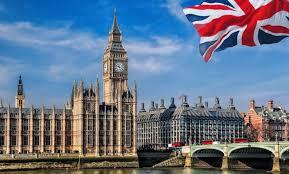British government renews its firm position on Sahrawi issue based on respect for international legitimacy

London, August 09, 2024 (SPS) - The British government renewed its firm position on the Sahrawi issue based on respect for international legitimacy and finding a just solution to the conflict in Western Sahara that guarantees the Sahrawi people self-determination.
This came in response to a question submitted by MP Ben Lake, a member of the parliamentary group for solidarity with the Sahrawi people following the victory of the Labour Party in the recent elections, where he directed written questions to the Foreign Minister about his country's position on the Western Sahara issue and the issue of human rights in Western Sahara.
In written responses from the British Foreign Office, Mr. Hamish Falconer, Under-Secretary of State at the Foreign, Commonwealth and Development Office, said that the United Kingdom supports the efforts led by the United Nations to reach a just, lasting and mutually acceptable political solution, based on compromise, which will provide for the self-determination of the people of Western Sahara.
He added, “We also support the work of Staffan de Mistura, the UN Secretary-General’s Personal Envoy for Western Sahara, and our officials regularly discuss the issue of Western Sahara with international partners, including the UN Mission for the Referendum in Western Sahara, and we continue to encourage constructive engagement in the political process,”
Mr. Hamish Falconer said, “The UK is committed to promoting respect for international humanitarian law around the world. In relation to Western Sahara and the refugee camps, we have consistently supported respect for human rights and support all relevant UN Security Council resolutions which encourage the parties to continue their efforts to promote and protect human rights in Western Sahara, including freedoms of expression and association”.
SPS 110